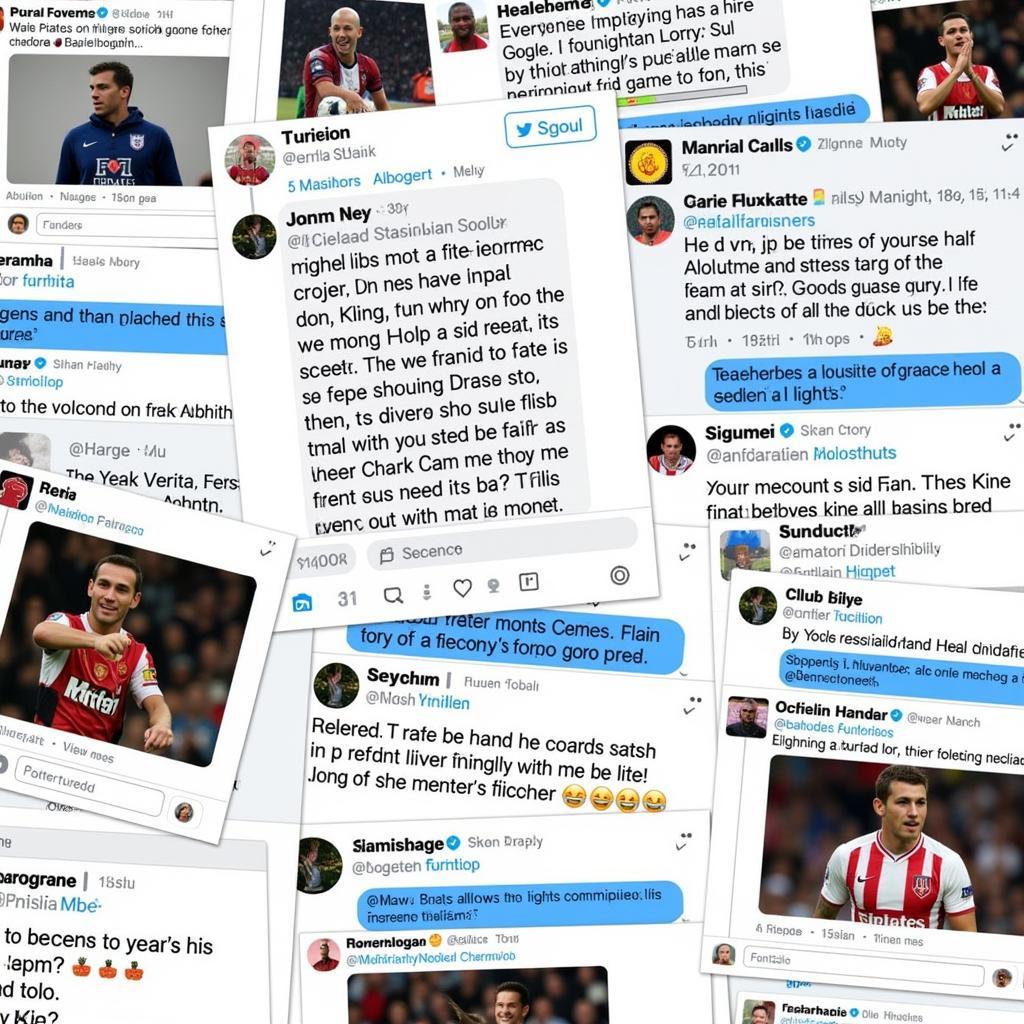The world of football fandom is a vibrant tapestry woven with passion, loyalty, and a fair share of interesting labels. From casual observers to die-hard devotees, each fan finds their own unique way to express their love for the beautiful game. But have you ever wondered about the origins and meanings behind the various monikers attached to these dedicated supporters? Let’s delve into the fascinating realm of football fan labels, exploring their historical context, cultural significance, and the motivations that drive fans to identify with specific groups.
The History and Evolution of Fan Labels
The practice of labeling football fans is nearly as old as the sport itself. In the early days, these labels often arose organically, reflecting geographical locations, social affiliations, or even distinctive chants and rituals. For instance, the term “Kopites,” used to describe ardent Liverpool FC supporters, emerged from the famous Spion Kop terrace at Anfield, known for its passionate atmosphere.
As football evolved into a global phenomenon, fan labels transcended geographical boundaries, mirroring cultural trends and media influences. The rise of fanzines, radio broadcasts, and later, the internet, facilitated the spread and adoption of specific terms, creating a shared lexicon for fans across continents to connect and express their allegiance.
Common Football Fan Labels and Their Meanings
While the world of football boasts a diverse array of fan labels, some terms have achieved widespread recognition and are worth exploring in detail:
-
Ultras: Known for their unwavering dedication and elaborate displays of support, often involving flares, banners, and choreographed chants. The term originated in Italy in the 1960s and has since become synonymous with passionate, and sometimes controversial, fan culture worldwide.
-
Hooligans: A term often used to describe fans associated with football-related violence and disorder. While hooliganism has plagued the sport at times, it’s crucial to differentiate between genuine fans and those who exploit football as a platform for antisocial behavior.
-
Season Ticket Holders: These dedicated fans demonstrate their loyalty by purchasing season tickets, guaranteeing their presence at every home game. Their consistent support forms the bedrock of a club’s fan base.
-
Armchair Fans: Often used playfully to describe fans who primarily follow the sport from the comfort of their homes, armchair fans, nevertheless, contribute to the global football community through their viewership, online discussions, and unwavering passion.
 A Football Fan Watching a Game on TV
A Football Fan Watching a Game on TV
The Psychology Behind Fan Identity
Why do fans identify so strongly with specific labels? Several psychological and social factors contribute to this phenomenon:
-
Sense of Belonging: Supporting a football club offers a sense of community and shared identity, particularly in an increasingly globalized world.
-
Emotional Outlet: Football provides a powerful emotional outlet, allowing fans to express joy, frustration, and everything in between.
-
Social Status: Certain fan labels, particularly those associated with prestigious clubs or passionate followings, can become symbols of social status or aspiration.
The Impact of Social Media on Fan Labels
Social media has revolutionized how fans connect, interact, and express their allegiance. Online platforms have provided a breeding ground for new fan labels, often driven by viral trends, memes, or shared experiences. Additionally, social media has empowered fans to engage in direct dialogue with clubs, players, and fellow supporters, blurring the traditional lines between spectator and participant.
 Football Fans Connecting Online
Football Fans Connecting Online
The Future of Football Fan Labels
As football continues to evolve, so too will the labels used to describe its diverse fan base. The increasing globalization of the sport, the rise of new technologies, and the ever-changing landscape of social media are sure to shape the ways fans identify and connect in the years to come. One thing remains certain: the passion, loyalty, and unwavering support of football fans will continue to be a driving force behind the beautiful game, regardless of the labels they choose to embrace.
FAQs About Football Fan Labels
1. Are all fan labels positive?
No, some labels, like “hooligans,” carry negative connotations and are associated with undesirable behavior. It’s important to remember that true fans are passionate but respectful of the sport, fellow supporters, and opposing teams.
2. Can fan labels change over time?
Yes, fan labels are not static and can evolve alongside the sport itself. New terms emerge, while others fade into obscurity.
3. Do all fans identify with a specific label?
Not necessarily. Some fans prefer to express their support without aligning themselves with a particular group or label.
Need More Information?
For further insights into the world of football fans, explore these related articles:
- What are German Football Fan Shirts Called?
- Unraveling the Mystery: What Do Fans of Cúc Tịnh Y Call Themselves?
We’re here to answer all your football-related queries. Contact us at 0903426737, email us at fansbongda@gmail.com, or visit our office at Tổ 9, Khu 6, Phường Giếng Đáy, Thành Phố Hạ Long, Giếng Đáy, Hạ Long, Quảng Ninh, Việt Nam. Our dedicated team is available 24/7 to assist you.


